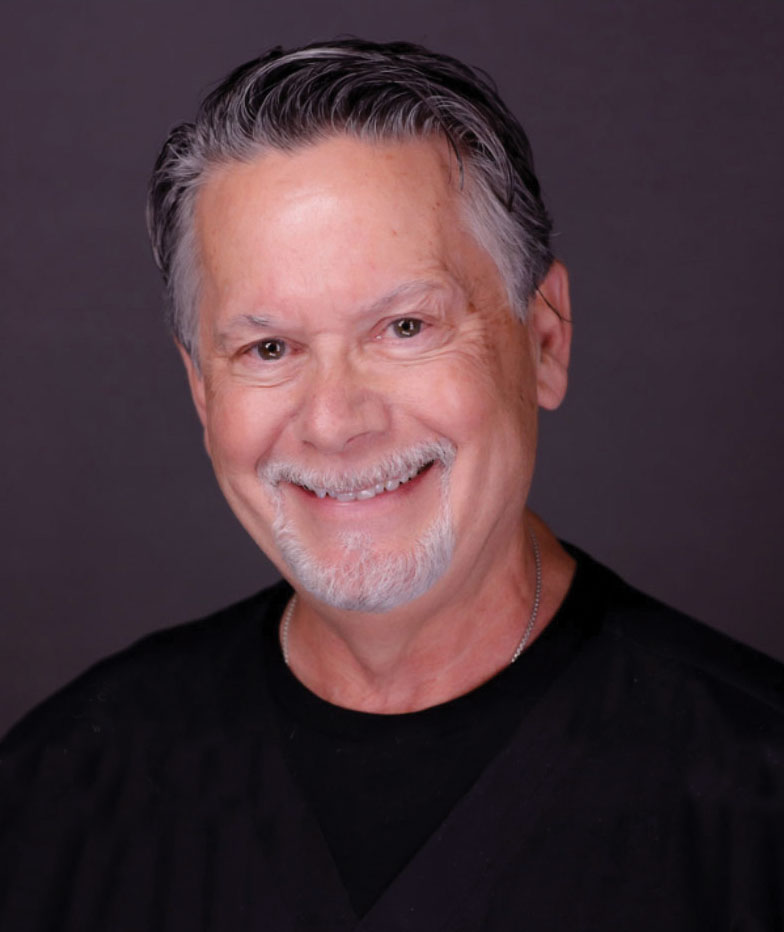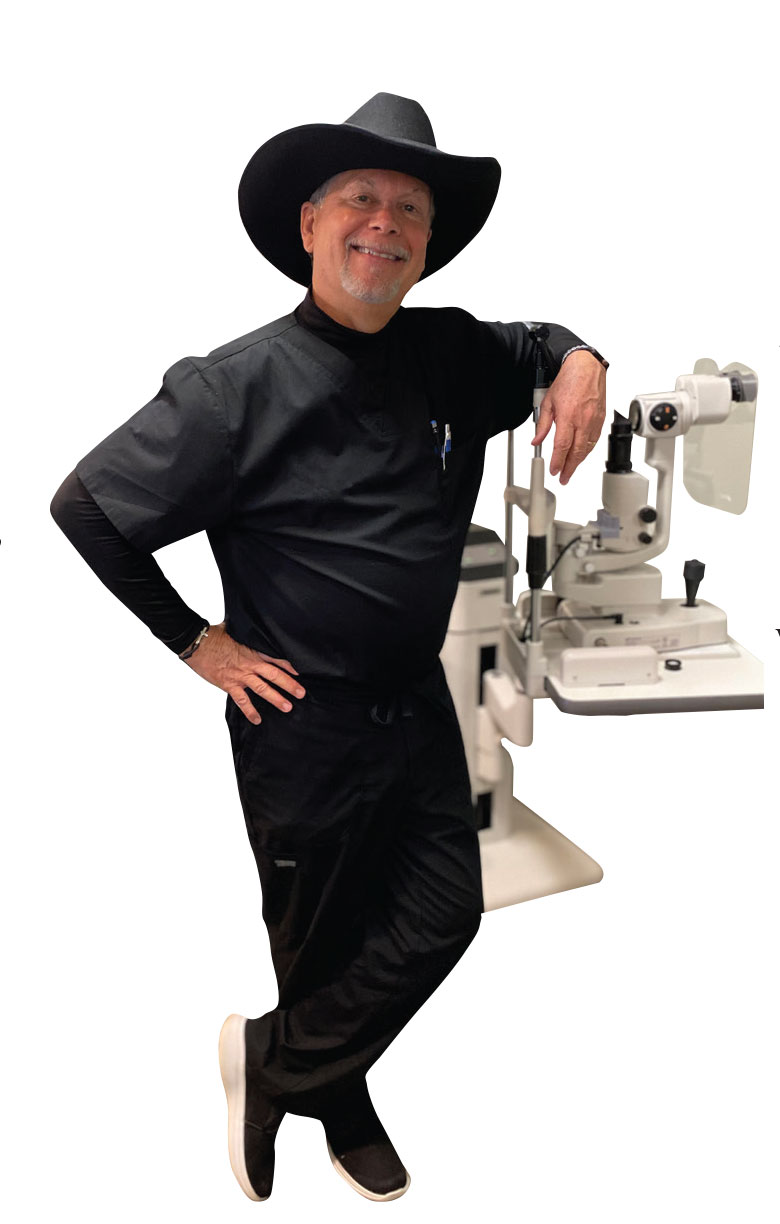 |
Scrubs. Didn’t we used to use this word to describe the little pimply-faced souls who barely made the team, sat at the end of the bench, never played in a game and were only there because they were used as fodder in practice for the “real” players? That was back in the good ol’ days, aka 2019.
Fast forward to the COVID era. Now, scrubs are the superhero costumes worn by health care workers who choose not to bring the scuzz home from their workplaces. Many optometrists also wear scrubs to the office in light of our current predicament. My partners do. I do too. My son, a surgeon, condescendingly—as a surgeon would—wondered aloud why an optometrist would dare wear scrubs to work. Well, since he deals with unconscious patients, he probably has never been attacked by an errant soft contact lens. Have I been? That’s a story for another time.
So, what are the advantages of wearing scrubs as an optometrist? Let me enlighten you:
 |
1. I live in Texas where it was 106° all summer. Scrubs are, in effect, the medical equivalent of wearing a Hawaiian shirt and pajama bottoms to work. Whatever semblance of a cool breeze runs right up your leg all day long. Ahhh.
2. The temperature can drop to 48° in the winter (when it’s not a beautiful 76°). You can wear long johns under your scrubs and, yes, even Spanx. Not me, of course. That’s just something somebody told me, or, more accurately, recommended last year when they saw me with my shirt off at the beach. Ouch.
3. First impressions are more important now than ever. Patients want you to at least appear cleaner and more sterile than ever before. I have always, for 41 years, washed my hands between patients. Now, I do it in front of them. That combined with my slimming black scrubs and matching mask all work together to show that I truly care about my patients’ health. Golf clothes only show you forgot how to tie a tie and you wish you were at the eighth tee, not in a dark room listening to a patient in distress caterwauling about why they can no longer read without glasses.
4. Wearing scrubs does a good job of wiping out your dry-cleaning bills. Those three pairs of khakis you used to rotate can hang there and rot for all I care. Just pop those scrubs in the washer with your underwear and socks, and all is well with the world.
5. Scrubs are overrun with pockets. I sometimes wish mine came with a user manual because some of the pockets seem very specific, and I just cannot figure out what they are really for. But it’s nice being able to tote around multiple pens and penlights, your cell phone, occluders, the occasional retinoscope, glasses, cleaning supplies, those little screwdrivers, cotton swabs, tissues, little bottles of CBD tincture, ham sandwiches, cans of diet soda, your stun gun and other odds and ends. You name it. Pockets don’t discriminate. I even have one large pocket designated solely to stash bagels, cookies and donuts delivered by hopeful sales reps. On the other hand, because there are so many pockets, I often find myself performing La Macarena in search of my car keys. Google it, kids.
6. When you wear scrubs out and about, you instantly have cred and are respected. At least once a week, someone asks me what kind of doctor I am. Usually it is my wife. But sometimes it is a total stranger, and when I tell them I am an eye doctor, they inevitably ask where my office is because they “can’t see nothin’.” Interesting that they are a school bus driver, but that’s beside the point. You are a walking billboard for your practice! Of course, if it turns out that the person who asks is a member of your state’s optometry board and you tell them you are an eye doctor, it could cost you a $300 fine for using the word “doctor” instead of “optometrist.” Check your state laws.
Moral of the story: get yourself some scrubs. I promise you will never look better.
Dr. Vickers received his optometry degree from the Pennsylvania College of Optometry in 1979 and was clinical director at Vision Associates in St. Albans, WV, for 36 years. He is now in private practice in Dallas, where he continues to practice full-scope optometry. He has no financial interests to disclose.

